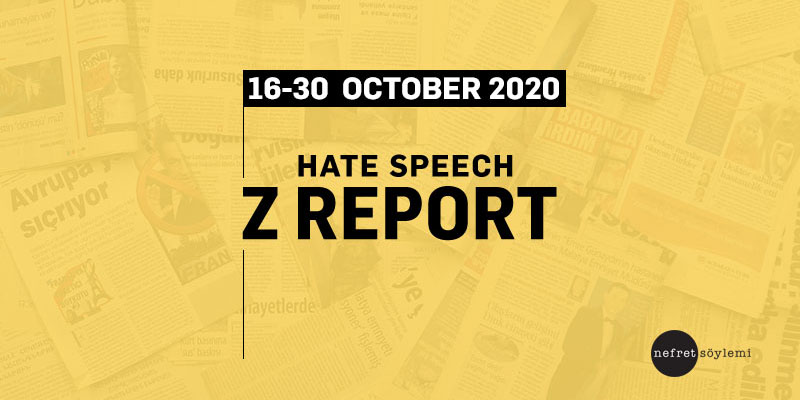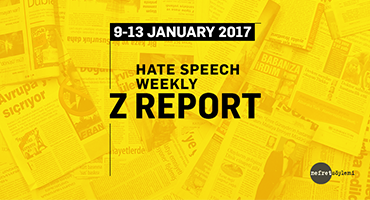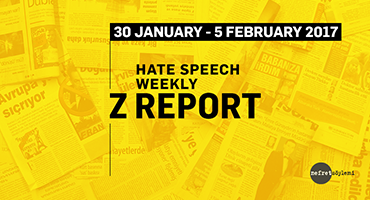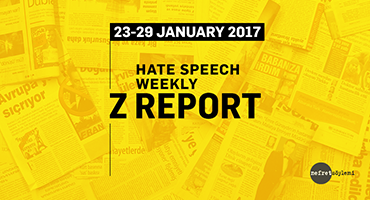Within October 16-31, 2020, three articles that generate hate speech were selected from print media. You can find three articles that contain hate speech against Armenians, Syrians, and Cypriot Greeks as well as the analyses written about them below.1
1.
Adnan Öksüz, in his column published in Milli Gazete with the title “Armenian Government in 11 articles – Armenian Army Glossary”, writes about the war between Armenia and Azerbaijan. He attributes various characteristics to the Armenian army and government such as arrogance, dishonor, vileness, sneakiness, and terrorism; in this way, he extends the scope of the clash beyond the political and military field, creating negative judgments about Armenians and reinforcing polarization in society. |
2.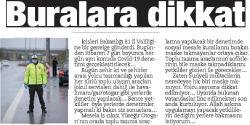
The article published in Adana 5 Ocak Gazetesi with the title “Be careful about these places” reports that individuals do not take coronavirus measures seriously. It is also stated that Syrian refugees do not wear masks and people are afraid that they might be lynched if they warn them. By representing all Syrians as reckless and violent people who do not wear masks, the newspaper generates hate speech against Syrians and creates a negative perception about them. |
3.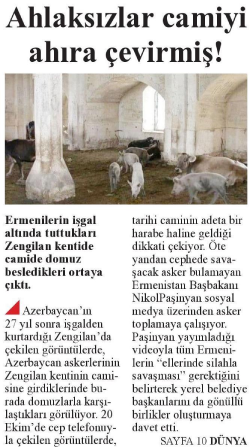
The article published in Diriliş Postası with the title “Scoundrels turned the mosque into a barn” criticizes people who used a derelict mosque in the Zangilan region along the Armenian-Azerbaijani border as a barn for years. It also reports the Armenian army’s conscription. Using the word “scoundrel” in the title, the newspaper insults Armenian faith and lifestyle and creates a negative perception of Armenians. |
4.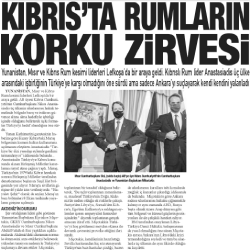
The article published in Bizim Anadolu Gazetesi with the title “Greeks’ summit of fear in Cyprus” reports the meeting of Greek, Egyptian and Cypriot leaders. The meeting is called the “fear summit” in order to suggest that the Cypriot leader is against Turkey, whereas the other leaders are not. By creating a hierarchy between Cypriot Greeks and others and belittling the Greek side, a negative perception against this identity is created and the discourse of conflict is reinforced. |
Within the scope of the media monitoring work focusing on hate speech, all national newspapers and around 500 local newspapers are monitored based on pre-determined keywords (e.g. Traitor, apostate, refugee, Christian, Jewish, separatist, etc.) via the media monitoring center. While the main focus has been hate speech on the basis of national, ethnic and religious identities; sexist and homophobic discourses are also examined as part of the monitoring work.

